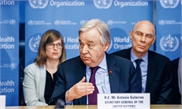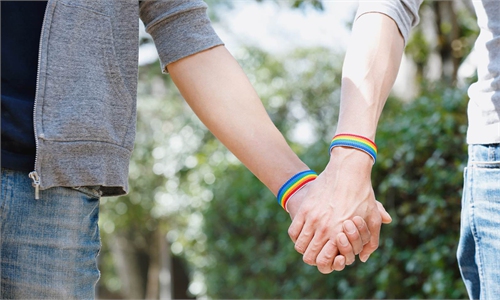From child marriage to revenge porn, 10 setbacks for women in 2020
Equality in retreat
From mass job losses to soaring domestic violence, the rise of revenge porn and a widening gender poverty gap, 2020 has threatened to hobble progress on women's equality as the COVID-19 pandemic wreaks global havoc.
UN experts predict the gender poverty gap will widen in 2021 amid the economic downturn.
Here are 10 setbacks women faced in 2020:
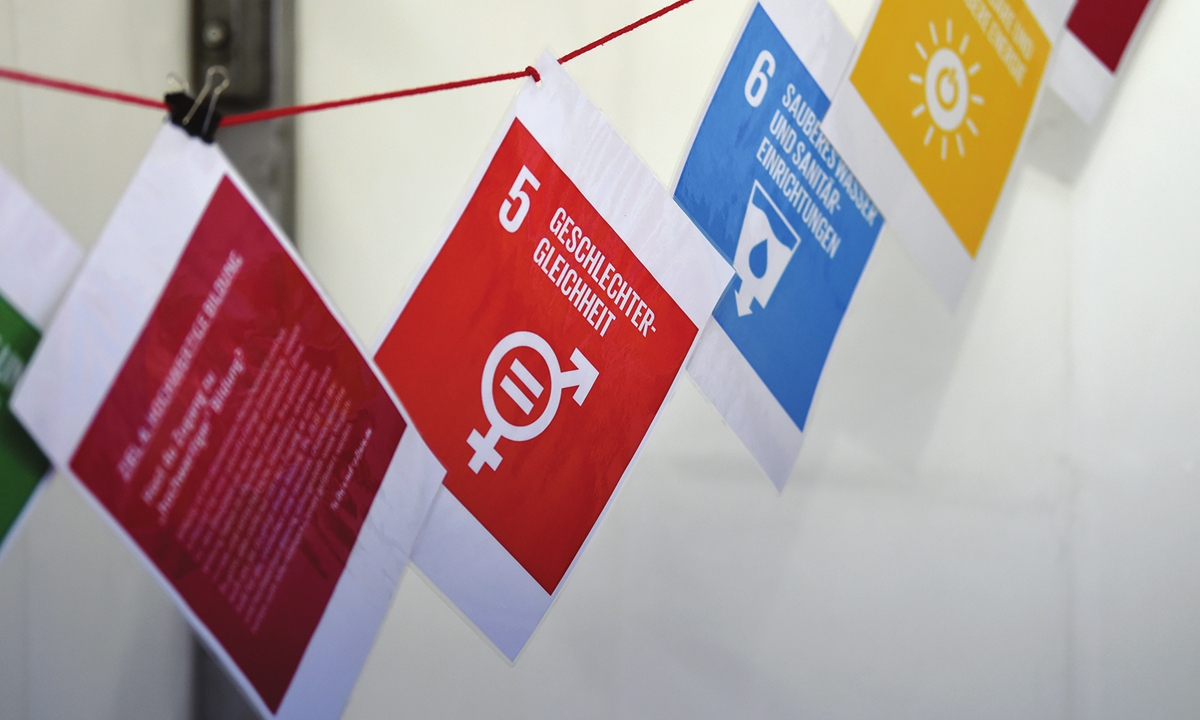
Even before COVID-19, women were doing three times as much unpaid care and domestic work as men, according to UN data, but this has soared in 2020 with women undertaking the lion's share of caring for sick family members and children off school.
One survey of parents in five wealthy countries showed mothers' unpaid work at home had nearly doubled to 65 hours a week - almost a third more than for fathers.
A women's equality group in Britain said there were "hints of a return to the 1950s" in terms of the division of labor.
Job losses
COVID-19 has disproportionately hit sectors employing high numbers of women including hospitality, retail and tourism.
Some women have also cut back paid work to take on extra caring duties. One report found mothers in England were 47 percent more likely than fathers to have lost or left jobs.
In developing countries, most women work in the informal economy with few protections against layoffs.
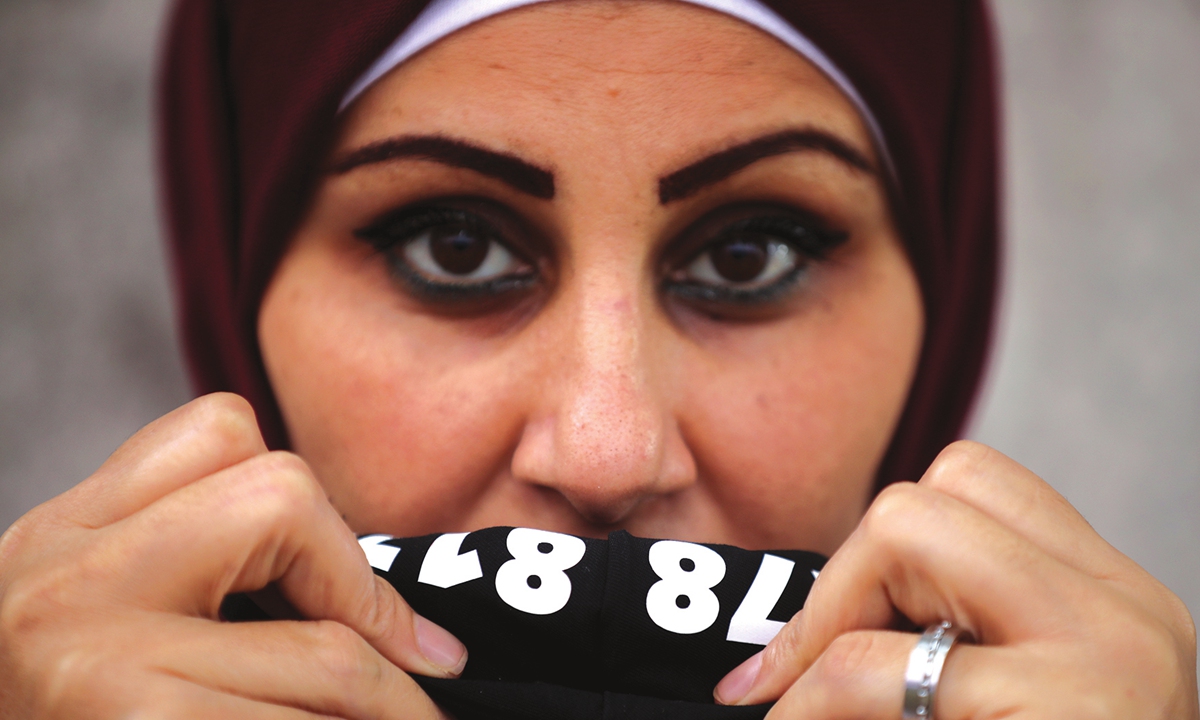
Long swept under the carpet, domestic violence made headlines in 2020 as lockdowns left women trapped at home with abusive partners.
The UN warned the crisis could lead to a 20 percent rise in domestic abuse, describing it as a "shadow pandemic."
Horrified by the surge in violence, UN Secretary-General Antonio Guterres called for a "cease-fire at home."
Girls' education
COVID-19 forced school closures in most countries, impacting hundreds of millions of girls.
In Africa, child rights groups fear many girls could drop out of school permanently, jeopardizing decades of work to reverse deep-rooted gender inequalities.
School closures have put girls at increased risk of sexual violence and child marriage, while lockdown poverty has forced some into "transactional sex" to buy basics.
Child marriage
The United Nations has predicted the pandemic could lead to an extra 13 million child marriages over the next decade, potentially undoing decades of work to end the practice, as deepening poverty pushes families to marry off daughters early.
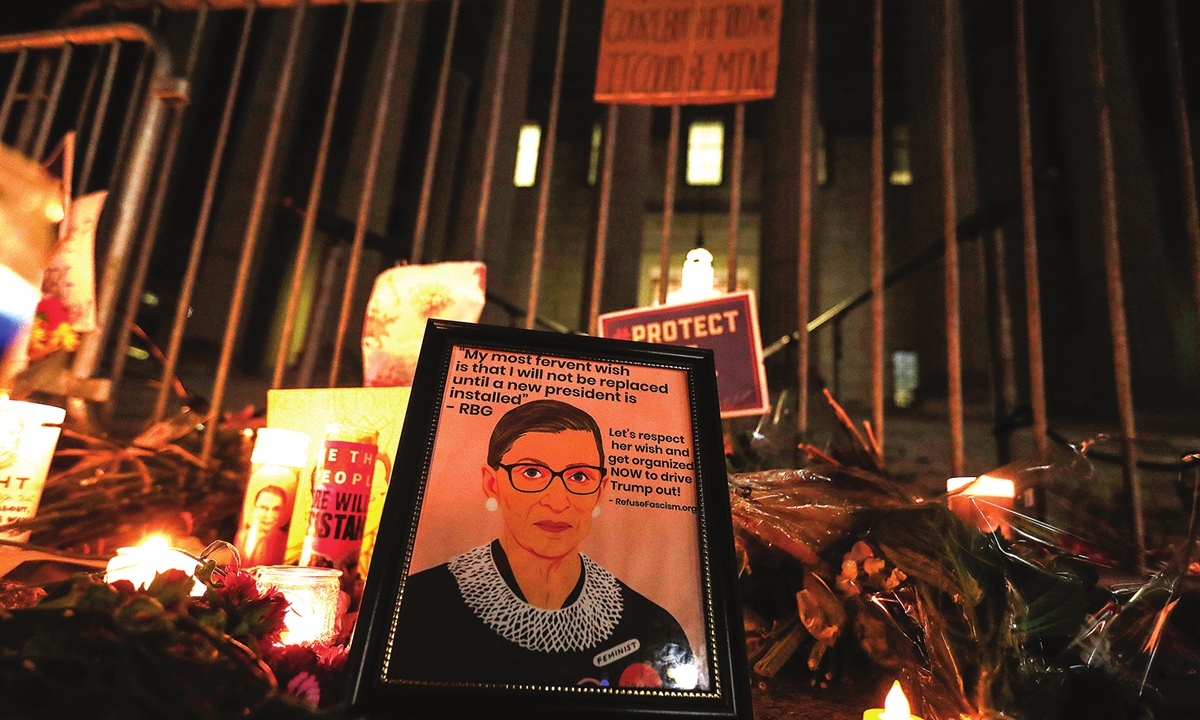
In Malawi, one charity reported a 350 percent rise in calls linked to child and forced marriages in the spring.
Female genital mutilation
The UN has predicted 2 million more girls than previously predicted could undergo FGM in the next decade as COVID-19 disrupts efforts to end the practice.
Increased rates of cutting have been reported across East and West Africa with lockdowns seen as an opportunity to carry out FGM undetected.
Campaigners in Kenya, which has vowed to end FGM by 2022, have reported mass cuttings in the Kuria community, with girls paraded through town centers and showered with gifts.
Abortion
Poland imposed a near-total ban on terminations in October, leading to massive street protests.
In the US, abortion rights groups fear the appointment of religious conservative Amy Coney Barrett to the Supreme Court could jeopardize a landmark 1973 ruling which legalized abortion nationwide.
Globally, coronavirus has increased barriers to abortion for many women due to travel restrictions, clinic closures and overloaded health services.
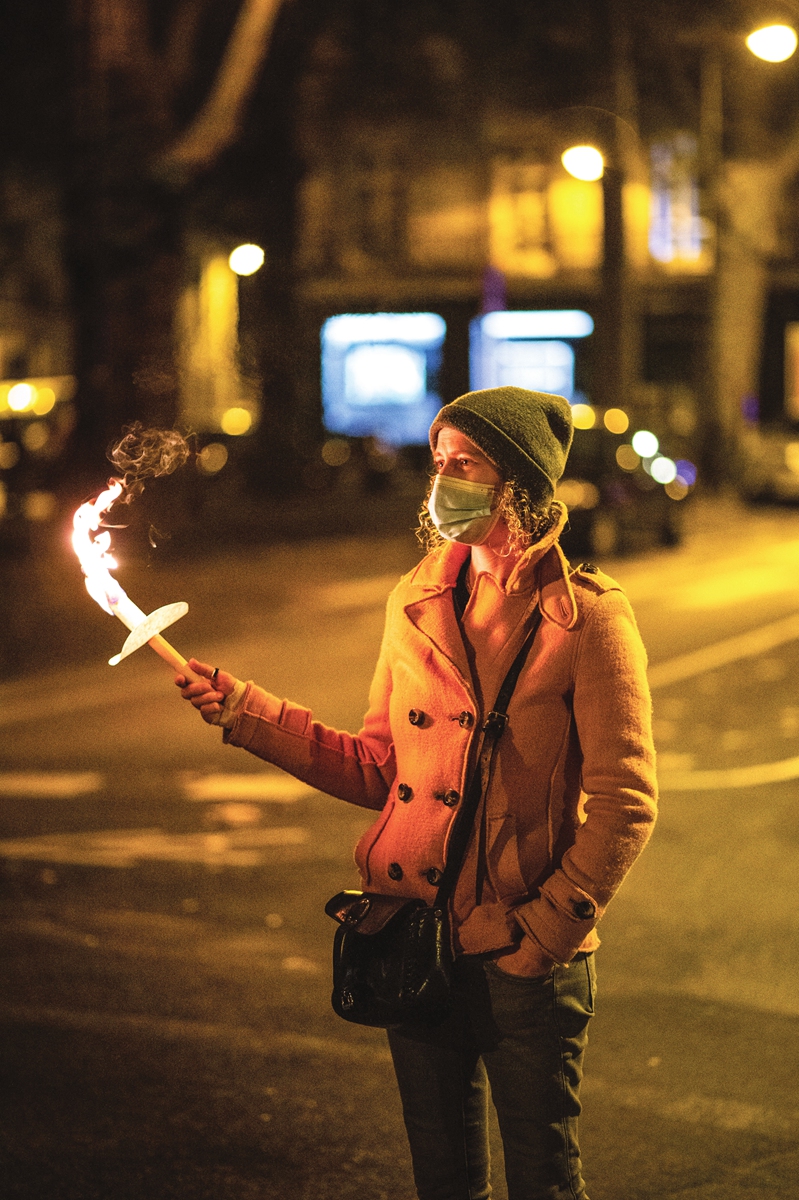
The number of women dying in pregnancy and childbirth has fallen by more than a third since 2000, but health experts say the pandemic could erode gains as women lose access to contraception and reproductive healthcare.
The Guttmacher Institute, a US-based reproductive health research organization, estimated even modest disruptions to health services would lead to 15 million unintended pregnancies, 28,000 maternal deaths, and 3.3 million unsafe abortions.
Coronavirus shut clinics and outreach programs in many places in 2020 as staff were redeployed to fight the virus.

Increasing poverty and school closures have left many girls and women more vulnerable to trafficking including online sexual exploitation, according to UN experts.
They say the economic downturn and job losses will likely increase trafficking from countries with the fastest and most prolonged falls in employment - a pattern seen during the global 2007-08 financial crisis.
Globally, there has also been a surge in cybersex trafficking in which women and children are forced into sexual acts livestreamed for paying clients worldwide.
The Philippines - considered the epicenter of cybersex trafficking - reported that cases of online child sex abuse had tripled under coronavirus.
Revenge porn
Women have reported a rise in "revenge porn" - online posts of intimate images, usually by abusive partners or ex-partners - during lockdowns.
One helpline in Britain said its cases had doubled in April.
In France, an activist started a campaign called #stopfisha to help victims report abuse after noticing an increase in photos and videos of naked girls on social media, tagged with their names.
In Morocco, a social media campaign has emboldened hundreds of "revenge porn" victims to fight back against a phenomenon that has driven some to consider suicide.
UN experts predict the gender poverty gap will widen in 2021 amid the economic downturn.
Here are 10 setbacks women faced in 2020:

Signs such as "Gender Equality" have been hung up at the Citizen Science Festival in Berlin, Germany, on October 14. Photos: AFP
Unpaid laborEven before COVID-19, women were doing three times as much unpaid care and domestic work as men, according to UN data, but this has soared in 2020 with women undertaking the lion's share of caring for sick family members and children off school.
One survey of parents in five wealthy countries showed mothers' unpaid work at home had nearly doubled to 65 hours a week - almost a third more than for fathers.
A women's equality group in Britain said there were "hints of a return to the 1950s" in terms of the division of labor.
Job losses
COVID-19 has disproportionately hit sectors employing high numbers of women including hospitality, retail and tourism.
Some women have also cut back paid work to take on extra caring duties. One report found mothers in England were 47 percent more likely than fathers to have lost or left jobs.
In developing countries, most women work in the informal economy with few protections against layoffs.

A Lebanese woman displays a protective mask hiding a hot number distributed by the NGO ABAAD in Beirut, Lebanon, on December 8.
Domestic violenceLong swept under the carpet, domestic violence made headlines in 2020 as lockdowns left women trapped at home with abusive partners.
The UN warned the crisis could lead to a 20 percent rise in domestic abuse, describing it as a "shadow pandemic."
Horrified by the surge in violence, UN Secretary-General Antonio Guterres called for a "cease-fire at home."
Girls' education
COVID-19 forced school closures in most countries, impacting hundreds of millions of girls.
In Africa, child rights groups fear many girls could drop out of school permanently, jeopardizing decades of work to reverse deep-rooted gender inequalities.
School closures have put girls at increased risk of sexual violence and child marriage, while lockdown poverty has forced some into "transactional sex" to buy basics.
Child marriage
The United Nations has predicted the pandemic could lead to an extra 13 million child marriages over the next decade, potentially undoing decades of work to end the practice, as deepening poverty pushes families to marry off daughters early.

People gather in front of Foley Square Courthouse in memoriam to Justice Ruth Bader Ginsburg on September 19, in New York City, the US.
School closures have exacerbated the risks. Authorities in Ethiopia have rescued hundreds of girls since schools shut.In Malawi, one charity reported a 350 percent rise in calls linked to child and forced marriages in the spring.
Female genital mutilation
The UN has predicted 2 million more girls than previously predicted could undergo FGM in the next decade as COVID-19 disrupts efforts to end the practice.
Increased rates of cutting have been reported across East and West Africa with lockdowns seen as an opportunity to carry out FGM undetected.
Campaigners in Kenya, which has vowed to end FGM by 2022, have reported mass cuttings in the Kuria community, with girls paraded through town centers and showered with gifts.
Abortion
Poland imposed a near-total ban on terminations in October, leading to massive street protests.
In the US, abortion rights groups fear the appointment of religious conservative Amy Coney Barrett to the Supreme Court could jeopardize a landmark 1973 ruling which legalized abortion nationwide.
Globally, coronavirus has increased barriers to abortion for many women due to travel restrictions, clinic closures and overloaded health services.

A woman wearing a mask holds a candle in her hand, during a march against gender-based and sexual violence in Nantes, France on November 25.
Maternal healthThe number of women dying in pregnancy and childbirth has fallen by more than a third since 2000, but health experts say the pandemic could erode gains as women lose access to contraception and reproductive healthcare.
The Guttmacher Institute, a US-based reproductive health research organization, estimated even modest disruptions to health services would lead to 15 million unintended pregnancies, 28,000 maternal deaths, and 3.3 million unsafe abortions.
Coronavirus shut clinics and outreach programs in many places in 2020 as staff were redeployed to fight the virus.

Charging Bull, symbolizing strength in adversity, and Fearless Girl, 2017, in Bowling Green in the Financial District, Manhattan, New York, the US
TraffickingIncreasing poverty and school closures have left many girls and women more vulnerable to trafficking including online sexual exploitation, according to UN experts.
They say the economic downturn and job losses will likely increase trafficking from countries with the fastest and most prolonged falls in employment - a pattern seen during the global 2007-08 financial crisis.
Globally, there has also been a surge in cybersex trafficking in which women and children are forced into sexual acts livestreamed for paying clients worldwide.
The Philippines - considered the epicenter of cybersex trafficking - reported that cases of online child sex abuse had tripled under coronavirus.
Revenge porn
Women have reported a rise in "revenge porn" - online posts of intimate images, usually by abusive partners or ex-partners - during lockdowns.
One helpline in Britain said its cases had doubled in April.
In France, an activist started a campaign called #stopfisha to help victims report abuse after noticing an increase in photos and videos of naked girls on social media, tagged with their names.
In Morocco, a social media campaign has emboldened hundreds of "revenge porn" victims to fight back against a phenomenon that has driven some to consider suicide.
